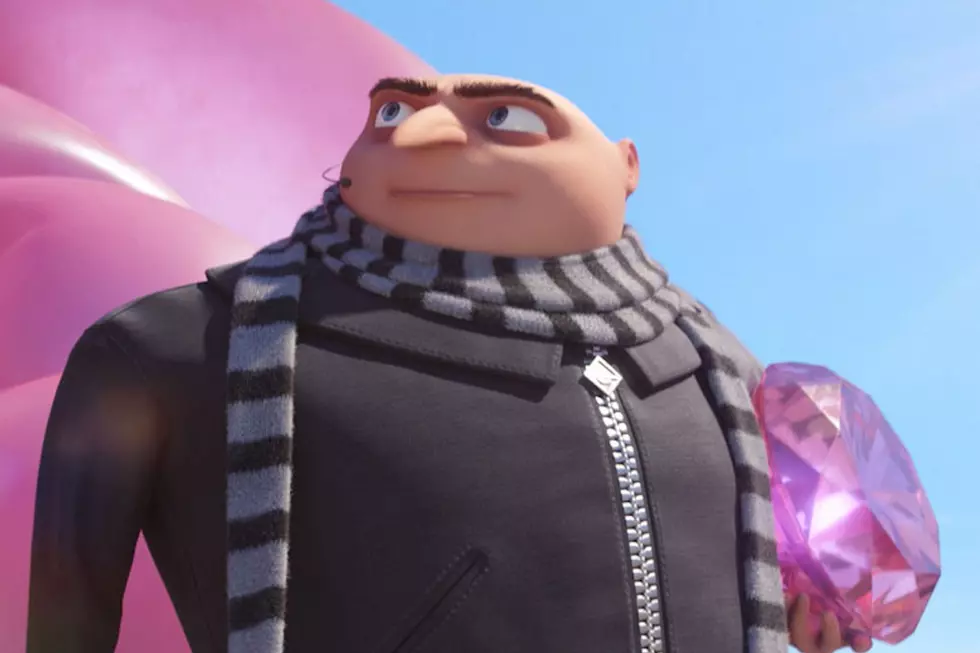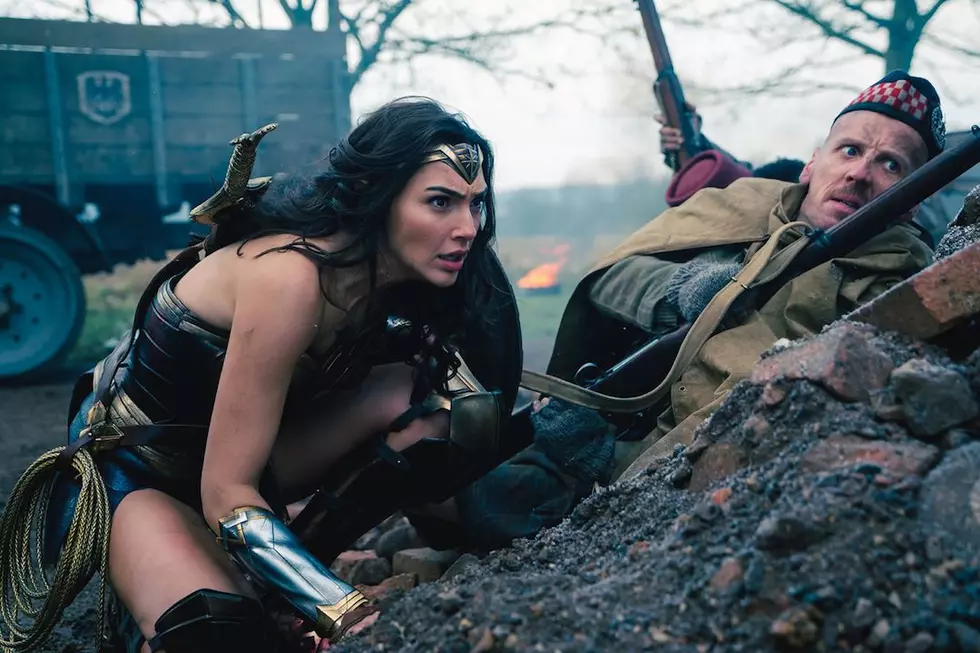
2017 Was the Best Year For Comic-Book Movies Ever
In a lot of ways — okay, in most ways — 2017 was a pretty terrible year. (Remember when we were all dying for 2016 to be over so we could turn the page in 2017? That went well!) One of the few bright spots of the last 12 months were the movies. Up and down the line, big films and small, the movie theater was a place of escape in 2017. And if 2017 set a benchmark for overall awfulness, it also set a high bar for excellence in at least one area: It was the best year for comic-book movies in history.
That’s just my opinion of course, but a look back at the year, and a comparison to previous years, show that there really is no other 12-month period that can hold a candle to 2017 when it comes to superheroes and their affiliated four-color brethren. Have there been better comic-book movies than the ones that came out in 2017? Sure. But there’s never been a calendar year with more quantity and quality comic-book movies with so much variety and consistency.
It started in February with The LEGO Batman Movie, a silly and very loving tribute to the long and sometimes contradictory history of the Dark Knight. Will Arnett gives easily the funniest vocal performance in an animated movie this year as the tortured LEGO Caped Crusader, whose neuroses are even more well-defined than his sick nine-pack abs. In an era where Batman movies were defined by increasingly absurd attempts to outdo their quotients of grimness and grit, LEGO Batman was a welcome return to a sweeter time of heroism. And the way Arnett’s Batman learns to play well with others and respect women made him a surprisingly timely hero as well.
The LEGO Batman Movie also set a tone for superhero movies that would continue through the rest of 2017: A willingness to stretch the boundaries of their respective properties. Cinema’s Batman had grown so dark that he was going around trying to murder Superman with bathroom appliances; LEGO Batman not only acknowledged Batman’s campy past, but it openly embraced it, bringing back previously forgotten villains like Egghead and Condiment King and ending the film with a cheerful musical number. That kind of elasticity of concept continued the following month in Logan, an X-Men movie without precedent in the franchise so far.
Gone were the elaborate costumes, the gadgets, the mansion, and the vast majority of the mutant team. The very notion of doing good is practically dead when the film begins. Instead, its hairy, pointy title character (Hugh Jackman) spends his days as a chauffeur, trying to scrape together enough money to buy a boat and escape from the world forever. Logan just wants to be left alone, but he’s called back to duty by a woman who needs his help protecting what amounts to the daughter he never knew he had. Ferrying her to the border while fending off a band of marauding vigilantes, the film is as much a revisionist western as it is a traditional superhero tale. (It is also a seriously R-rated story, with intense bloody violence and heavy profanity.)
Two months after Logan, Marvel Studios released its first blockbuster of 2017: Guardians of the Galaxy Vol. 2. It didn’t completely break the rules of the previous film the way Logan did, but it continued the rule-breaking ethos of the original Guardians, a sardonic romp through space with a group of eccentric anti-heroes. In Vol. 2, the Guardians continue their squabbling and grow as people (or raccoons or space-trees or whatever). And writer/director James Gunn pushed boundaries in smaller ways; for most of its runtime, Guardians Vol. 2 is essentially a film without a villain. Instead, Gunn focuses on the characters’ troubled pasts and their family histories, like Gamora’s (Zoe Saldana) complicated relationship with her sister Nebula (Karen Gillan), and Star-Lord’s (Chris Pratt) discovery of his father, the Celestial being known as Ego (Kurt Russell). Eventually, it’s revealed that Ego isn’t quite as benevolent as he seems, and that his galactic empire is literally built on the bodies of children he sacrificed for his goals. (Interestingly, Marvel’s other 2017 production, Thor: Ragnarok, features an almost identical revelation about Odin and his rise to power in Asgard.)
One month later, Warner Bros. broke ground of its own with the first female superhero to headline her own film in over a decade. And what a film: Patty Jenkins’ Wonder Woman, with Gal Gadot as the Amazon princess Diana, who ventures into the world of men for a battle with Ares, the God of War. Along the way, she inspires the Allied forces during World War I — and provided similar encouragement to modern audiences, who found in Wonder Woman the powerful, self-sufficient heroine who had be lacking from generations of comic-book movies. After several mediocre-to-poor entries in the DC Extended Universe about dreary protagonists and muddled plotting, Wonder Woman set Warners’ superheroes back on course (at least for a few months).
In June, a new Spider-Man played by Tom Holland got his own solo debut, in Sony and Marvel’s Spider-Man: Homecoming. This film wasn’t nearly as groundbreaking as Wonder Woman — there have been five previous Spider-Man features — but it was a major course correction after the tedious and awkward Amazing Spider-Man franchise. Holland was an instantly likable Peter Parker, and Michael Keaton was one of the Marvel Cinematic Universe’s most complex villains as Vulture, an entrepreneur in charge of his own small business in danger of being swallowed up by big government dominated by corporate interests. Even as he provided the obligatory spider-action, director Jon Watts also found room to make a believable coming-of-age teen comedy, with tentative romances and hard lessons about the melancholy reality of growing up.
2017 hasn’t just been about comic-book superheroes either; the indie graphic novel The Coldest City served as the inspiration for one of the summer’s most atmospheric thrillers: Atomic Blonde, starring a ferocious Charlize Theron as a spy working both sides in Berlin during the final days of the Cold War. And in September, comics provided more espionage fun at the movies in Kingsman: The Golden Circle, a sequel to the 2014 film about a group of private secret agents who operate out of a bespoke British tailor. The Golden Circle wasn’t quite as stylish as Atomic Blonde (or as charmingly retro as the first Kingsman) but it still provided a solid amount of fun in the mold of the old Roger Moore Bond pictures.
November’s Thor: Ragnarok may have been the most purely entertaining superhero movie of the year — and 2017’s most inspired reinvention of a series. Director Taika Waititi ditched the faux Shakespearean tone and “dark world” of the first two middling Thor movies for an explosion of bubblegum colored tableaus, self-mocking humor, awesome action, and a synthesizer-rich ’80s-style score. He also gave Thor (Chris Hemsworth) an emotional makeover to match his physical one (the short hair and battle armor were a massive improvement on his previous space Viking style).
There’s really no prior year that can hold a candle to all of those movies. 2016 had Captain America: Civil War and Doctor Strange (and Deadpool, if you were a fan of that one). But it also had Batman v Superman, Suicide Squad, and X-Men: Apocalypse. 2014 saw the releases of Captain America: The Winter Soldier, X-Men: Days of Future Past, and the first Guardians ... and also The Amazing Spider-Man 2 and the first live-action Teenage Mutant Ninja Turtles. 2012 had The Avengers, Dredd, and The Dark Knight Rises, but that’s about it on the plus side of things (The Amazing Spider-Man was the other notable, terrible release.) Maybe the closest competition is 2008, with the original Iron Man and The Dark Knight, Hellboy II, and maybe Punisher: War Zone. But then you have to factor in The Incredible Hulk, and the abysmal movie version of The Spirit. By definition, no year with the movie version of The Spirit can be the best year ever for comic-book movies.
Superhero cinema in 2017 ended on a low note with Zack Snyder’s Justice League, but even that film had a few bright spots, including Jason Momoa’s hard-drinking Aquaman, who’ll be the next DC hero to get his own film next year. And 2018 will also feature X-Men, Deadpool, and Ant-Man sequels, the first Black Panther and Venom solo films, and Avengers: Infinity War, the largest Marvel movie to date. So while 2017 is the best year for comic-book movies for now, it may not hold the record for very long. At least if 2018 is as much of a disaster as 2017, we have all those superhero films to look forward to.
Gallery - The Best Marvel Studios Posters Ever:
More From Gator 99.5










